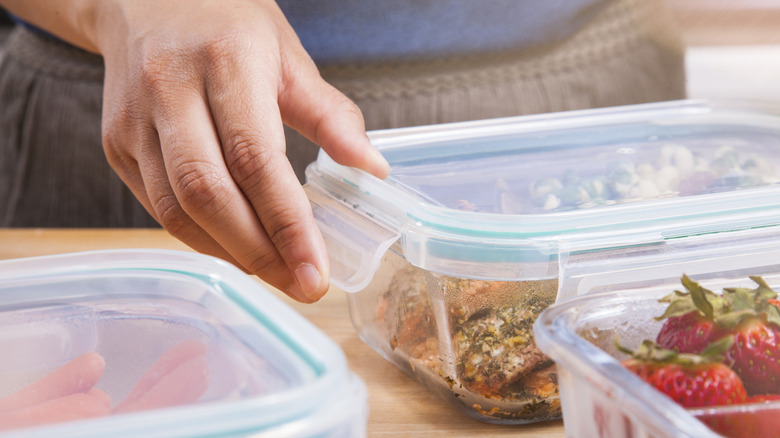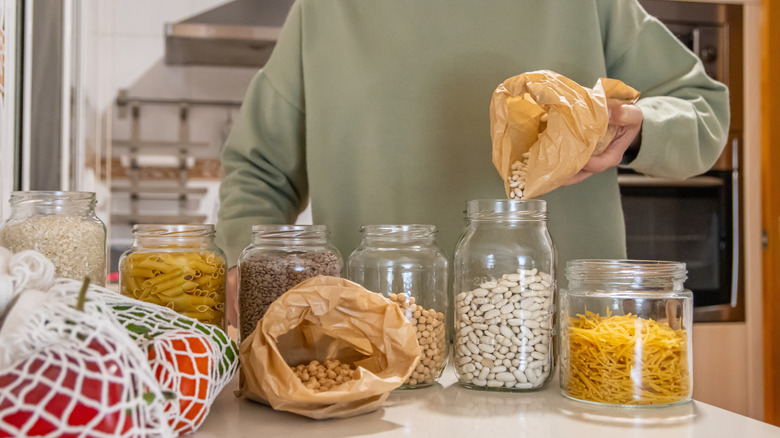The Tell-Tale Sign It's Time To Replace Glass Food Storage Containers
We may receive a commission on purchases made from links.
In the great debate between plastic and glass food storage containers, glass has the most wins: It's sturdy, non-toxic, and stain-resistant (the likely reasons so many people are switching to glass Tupperware). But durable doesn't mean indestructible, so your favorite glass storage containers will eventually need to be replaced. But when? It comes down to the integrity — and therefore, safety — of the glass itself.
Glass is surprisingly strong but, as anyone who has dropped glassware onto kitchen tile knows, very delicate. The glass used to make food storage containers — soda-lime, tempered, and borosilicate — tends to be slightly heavier to help it withstand everyday use, but it'll crack and break like any other. Most people know to throw away clearly broken glass containers, but if there's a chip or two, they'll put them back in the cupboard. However, that chip changes the whole game. Why? Chips or nicks can trap bacteria, potentially spreading it to your food. Plus, nicks could mean the glass structure itself has weakened, leading to cracks or even breakage. Not to mention the possibility that small glass shards could drop into your food. In short, it's simply not worth the risk. Does that mean you shouldn't ditch the plastic food storage containers? No, but keep an eye open for any damage, no matter how small it seems.
How to check glass food storage containers for nicks and cracks
The best way to know when it's time to replace glass food storage containers is to check them often for any signs of injury. What are you looking for? Obviously, chipped and cracked containers need to be replaced right away, so look for any big chunks of missing glass or large cracks running through the container. Then, examine them closer for smaller nicks and chips along the rim of the container. Check the glass itself for any cracks, no matter how small. Also, look over the lids for cracks or, if they're plastic, ripping, to make sure your food is stored safely. If some of your containers need replacing, look for ones made with borosilicate glass, like JoyJolt Borosilicate Glass Storage Containers or Rubbermaid Brilliance Glass Food Storage Containers, for extra durability.
The key to ensuring your glass food storage containers are always safe to use is to pick a routine that fits into your current cleaning schedule to go through your collection. Maybe it's once a month when you deep clean your kitchen, or maybe you just eyeball them before you put them away when you empty the dishwasher. To keep them nick-free, be gentle with the containers, especially when you're stacking them in the cupboard for storage.

